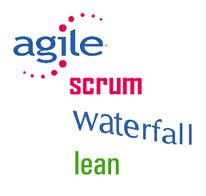 There is often great debate on which implementation methodology – Waterfall or Agile – is the best approach to use when tackling a professional services engagement. The answer is…BOTH!
There is often great debate on which implementation methodology – Waterfall or Agile – is the best approach to use when tackling a professional services engagement. The answer is…BOTH!
With the rise of SaaS and Cloud Computing there has also been a rise in the desire to use an Agile methodology: get basic requirements, prototype, get feedback, refine, and continue to iterate the process. This approach has great merit and can be very helpful in enabling folks to visualize their requirements. However, the downside is that you risk ending up with an organically-grown solution that burns up a lot of budget, misses the mark and is a product of a “mouth-to-ears-to-keyboard-to-screen” process with little documentation and understanding of how you arrived where you did.
On the other side, you have a more rigid Waterfall approach. The Waterfall approach can be extremely valuable in making sure there is clarity on requirements, appropriate documentation, and planned steps that in turn ensure the solution is configured, tested, and deployed on-time and within budget. The downside risk here, however, is that you deliver a solution on-time and on-budget that users have a lukewarm reaction to. The operation may be successful, but unfortunately the patient still dies.
So what is the answer? Using the best aspects of each approach in the right places in the implementation process. We have seen a Waterfall approach around requirements definition, design review, testing, training, and rollout be very effective when coupled with Agile-like iterative reviews during solution configuration and development. This has provided the greatest success.
Structured but nimble is the best approach, in our opinion. And it’s our way of providing innovative solutions that delight users and are delivered on-time and within budget.
